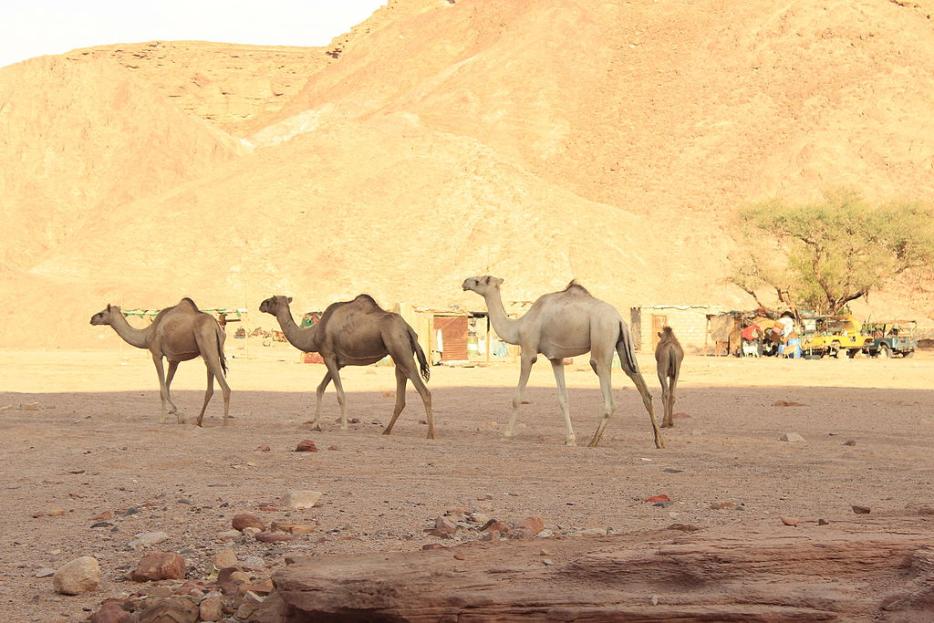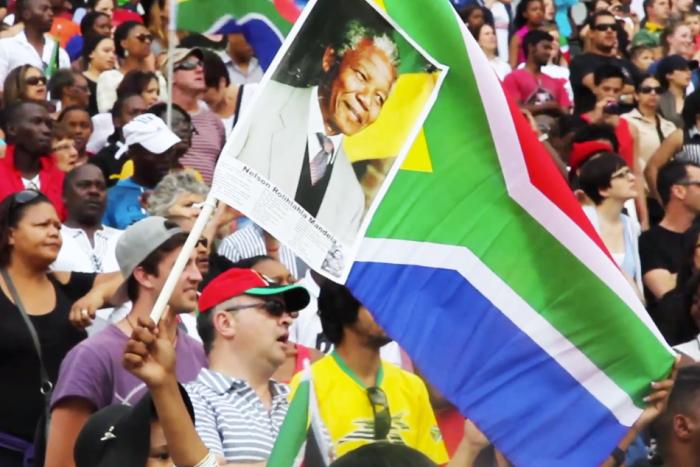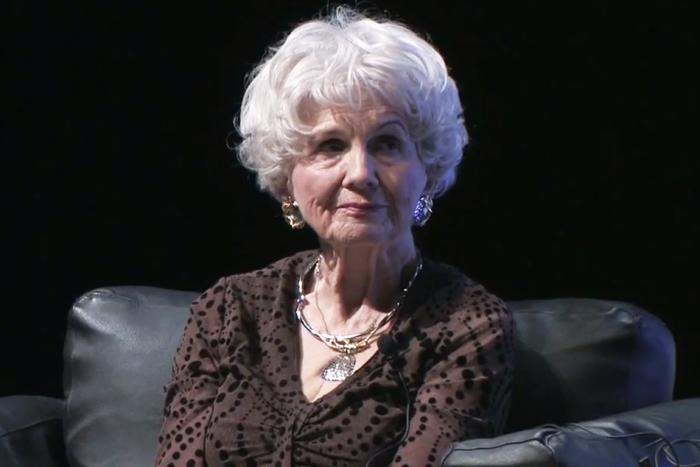“The Great War ruptured the historical continuum, destroying the legacy of the past.” - Geoff Dyer
With 2014 marking 100 years since the outbreak of World War I, we can expect a prolonged spell of commemorations and new book releases dedicated to piecing together that lost past Dyer speaks of. Margaret MacMillan’s recently published The War That Ended Peace: The Road to 1914 is already being hailed, justifiably, as a landmark work of scholarship. But as much as the Great War proved to be the foundational event of the 20th century, our understanding of the conflict has suffered from a lack of attention paid to what transpired on the Eastern Front, that “sideshow of a sideshow” in the words of T.E. Lawrence. For this reason, Scott Anderson’s Lawrence in Arabia is something of a revelation.
Not that there’s been a shortage of books on the Oxford Orientalist turned unlikely leader of the Arab Revolt, including Lawrence’s own Seven Pillars of Wisdom, a formidably voluble, poetic, and somewhat embellished wartime memoir. But Lawrence in Arabia rounds out our understanding of both the man and his war on the Eastern Front by introducing a trio of lesser-studied secondary characters: the wily German spy, Curt Prüfer; American William Yale, Middle East representative for Standard Oil; and Aaron Aaronsohn, a Jewish agronomist and early Zionist. Though Lawrence still dominates the narrative, Anderson’s construction smartly illustrates how much the competing imperial ambitions and seemingly low-level operators shaped the conflict, and by extension, the modern Middle East. Meticulously researched and thrillingly told, it’s probably the book I most enjoyed reading this year.
The New York-based Anderson is a novelist, journalist and war correspondent; he is also the co-author of two books with his brother, New Yorker staff writer Jon-Lee Anderson (War Zones and Inside the League). Hazlitt spoke to Anderson during a visit to Toronto this fall.
---
For me, Lawrence in Arabia is essentially a reminder, or to some a necessary introduction, of how World War I, and the dissolution of the Ottoman Empire in its aftermath, serves as the foundational event of the 20th century. We’re more thoroughly obsessed, I think, with World War II; we’re obviously nearer to it, there are still first-hand witnesses. And yet the First, given what happened on the Eastern front versus the West—its lessons seem particularly more relevant and poignant today.
It’s true. You could really look at almost everything as dating from then. And on the Eastern front you have the rise of Communism and of course the tensions rising we see in the Middle East.
I always kind of imagined that World War I was about the maintenance of the European Empires. But in fact it was about the expansion of them. These guys were so deluded that they actually thought that this war was about the next wave of imperialism. And to understand that, you have to look at what happened just before, which was the scramble for Africa. That over the previous 40 years the European powers colonized an entire continent, at virtually no body count to themselves. That was the mindset they went into it with.
What they didn’t really sort of take into account is like… you know the Battle of Omdurman is one thing, where the British lost, I think it was 46 or 47 men, while killing 10,000 horsemen armed with spears. But what’s going to happen when the other side has machine guns too. It’s just this colossal disaster that very few people saw coming. And then, yeah, as you said, it just predicated everything that’s come since.
What’s your relationship with the Lawrence story?
I saw the movie as a kid. I grew up in East Asia and I can still remember, there was this little dinky movie theatre for expatriates in Taiwan. It probably sat 60 people or something, and my father took me to see it. This was in like, 1967, so it was like five years after the movie came out. I had no idea who Lawrence was. But more than any movie I can remember from my childhood, it just stuck in my head. Then as a journalist I did a lot of war reporting. Inevitably, I spent a lot of time in the Middle East over the last 30 years. And when you have any in-depth conversation with anyone in that region, they always go back to what happened at the end of World War I, with it being divided up between the British and the French. I spent so much time in the Middle East, I really wanted to get a much better handle on how this all came about. I thought you could do that through Lawrence and it could be a great book.
Though Lawrence is the dominant character in the book, you flesh out the story with three lesser-known characters. The German spy, Curt Prüfer, William Yale, the American who works for Standard Oil, and the agronomist and early Zionist Aaron Aaronsohn from what was then Palestine. How did the notion of that narrative, interweaving these very different characters together, come about?
The original idea was to do something on Lawrence, and I tried to think of what I could do that was different. There’s already something like 70 books on Lawrence. I was always just going to focus on the wartime. So I had this mini-epiphany one day, where I came back to this central riddle on Lawrence, which is: how did this 28-year-old Oxford scholar who had never had a day of military training, how did this guy end up in Arabia and lead a foreign rebel army into battle?
A huge part of the answer is that no one was really paying much attention to what was happening in that part of the world. The British and the French, 95% of their blood and treasuries were being spent on the Western front. What was happening on the Ottoman front was not even secondary, tertiary, or whatever is beyond tertiary. So if this guy could go off and cause problems, if he could rally the rebels to fight against the Turkish enemy, the Turks being aligned with Germany, the thinking was great, go do it. Then it occurred to me if that was true about the British, who were by far the biggest imperial player in the region, then it must have been true about the other powers, too.
If the objective is to de-militarize Palestinian society, what’s the best way to do it? Well, give them a state. If you give people something then they have a stake in the system.
So with that in mind I spent a long time just fishing around for other people to paint a much broader portrait of what was happening in the region. Rarely do you hear about the German side of stuff, and I came across Prüfer—there’s been one book done on him, it’s mostly on his time during World War II, only a little bit on World War I, and he had a very similar bio to Lawrence. He was an Oriental scholar who had just shown up in the region and become entranced by it. Yale, he was virtually the only American in the region at the time. First he was there as a representative for Standard Oil in the Middle East. Then when the Americans joined the war in 1917 he had to leave. But he shows back up a few months later as the only American intelligence officer. So he seemed kind of a natural to follow, just getting a sense of America as this embryonic player on the world stage. As an intelligence guy he’s just as badly informed about what is happening as all his successors have been. So he’s kind of the archetypal American intelligence officer. [Laughter]
And then you have Aaron Aaronsohn, who merits his own biography, given he’s such a complicated character. He’s charming and infuriating and zealous in almost equal measure, and there’s something implicitly literary about him.
Yeah, he’s an outsider, really temperamental, would always take offence, and completely undiplomatic. This was a time when his fellow Zionists, primarily operating out of England, waged what was very much a stealth campaign. For them it was like, “Let’s get approval [for a Jewish state] through the Balfour Declaration and increased Jewish immigration into Palestine… but let’s not talk about what’s coming after that.”
Instead, Aaransohn was very openly talking about creating a Jewish state. He also had the sense that he was always the most interesting person in the room. And he was usually right. Famously, there was a dinner party in the United States with Teddy Roosevelt, when he was no longer president. They sat Aaronsohn next to Roosevelt, who was himself a massive talker, just to see who would win out. And Aaronsohn won out, he just talked at Roosevelt, I think it was for 95 minutes or something.
How did your firsthand, contemporary experience and reporting inform the writing of Lawrence in Arabia?
I know the topography of the place, and I know, in broad-strokes, how the clan and tribal structure works, and how important it remains throughout the region. Something that obviously Lawrence appreciated when most of his British army contemporaries didn’t. Also having gone to war, it really has helped me understand Lawrence I think in a way that other biographers perhaps don’t. I don’t know if I would really consider myself a biographer of Lawrence, but the biographies I’ve read don’t really get this fundamental thing about Lawrence, especially in the aftermath of the war. He was a very haunted and sad man by war’s end, partly because of the promises he had repeated to the Arabs that were never fulfilled. But also just from his experience of war.
Near the end of the book you fast-forward for some historical context and describe the Arab Spring as a positive, transformational moment. I realize you only didn’t complete the galleys until a few months ago, but already so much has happened—such as Egypt’s military unseating the Muslim Brotherhood government that was democratically elected. Has your assessment of this long transformational moment changed at all?
Right… [chuckles]. I think in the paperback edition I might write a new epilogue. Yes, I ended on this sort of optimistic moment about the Arab Spring. I now put that moment for optimism a little further out. What I’m increasingly convinced of is, even more than when I wrote it, is what we’re seeing now throughout the region is a dismantling of those old borders, the boundaries that were set up almost a hundred years ago.
Iraq today is essentially three countries, and it’s very much along the lines of the three vassal states or provinces that existed under Ottoman times, which the British then ignored by creating the nation of Iraq. Libya is becoming three countries, again going back to the Ottoman borders essentially. So I think what you’re seeing is this disintegration of those artificial lines. It’s very difficult to see then what comes next, I mean are these all going to be little tiny Balkan nations?
But here is where my optimism comes in. I think as a result of all that was imposed on the Arab world by the imperial powers was a society that largely defines itself by what it’s against, by what it’s opposed to, rather than what it aspires to. I’ve been very struck by that, in covering wars. If I was to talk to a Tamil Tiger in Sri Lanka and ask them what they were fighting for, it might be an unrealistic or juvenile idea but they could articulate what they wanted, or what they were fighting for. In the Middle East you tend to hear what they’re against, again and again, and very little thought of what they’re actually fighting for. So I think that as this Western-opposed framework falls apart, this culture that has existed for so long as anti-imperialist, anti-Zionist, anti-Western in general, they’re no longer in the thrall of this thing that was imposed upon them.
They have to ask the question, “Now what is it we want?”
Now, what is it we want. I’ve felt this for a long time regarding the Israel-Palestine conflict. If the objective is to de-militarize Palestinian society, what’s the best way to do it? Well, give them a state. Because once they have a state, of course it doesn’t happen over night, but people gradually start caring about schools, clean water, local government. Where’s all the development money coming in from Europe, they begin to ask where is that disappearing to? People start taking on normal, pedestrian concerns. If you give people something then they have a stake in the system.
Also near the end of the book, you reference the many What if questions that people have raised through Lawrence’s story. “What if the history was a little different? What if Lawrence had lived? What if Lawrence actually played a more active, constructive role after the war?” He basically retreated from after having a position of influence in politics or the army. You go on to suggest, however, that in all probability, it wouldn’t have been any more positive an outcome. Could you elaborate on that?
It ties into what we were just talking about, the idea of this society that’s always tended to see itself in terms of its grievances against the West and what was imposed by the West. I don’t think there was ever going to be, and I don’t think Lawrence ever imagined there was ever going to be, this vast, single, Arab nation. Certainly in 1918 or 1919, what separated, say, a Lebanese from a Bedouin in Arabia was pretty vast. But I think what Lawrence foresaw was if there is this racial or ethnic kinship that all Arabs feel, his idea was is that you let this happen organically, and that is largely helped along by [regional] commerce and trade. Even in Lawrence’s time the world was rapidly becoming a smaller place, with cars, with airplanes, especially with trains. What draws people together is self-interest, essentially. Over time, you create this economic interdependence in the Arab world, and then a kind of political interdependence follows. But it was hardly this idea of a great Arab nation united under one person. I think he had a much more pragmatic idea about it.
Obviously there are many historical characters, major and minor characters, that figure in Lawrence in Arabia. Is there anyone in your story that you feel has been ill-treated by history, or at least by conventionally told history.
Good question. Yes. Yes. Djemal Pasha, the Turkish/Ottoman governor of Syria. It’s always a danger that you have, that people become the personification of a culture, of a state, but Djemal Pasha was so fascinating. He was a deeply religious Muslim, and yet at the same time a complete Francophile, loved speaking French, loved hanging out in salons… but he could be really merciless and a despot.
He had this vision of putting in modern sewers, streetlights, and electrification throughout Syria. And was doing this in the midst of the war, when there was a Typhus epidemic killing hundreds of thousands of people, and he was building canals. The other thing that’s amazing about him is during the Armenian deportations and massacres, though he was a member of the ruling triumvirate of Young Turks, he fought strenuously to try to protect the Armenians, to the degree that Armenian historians that have generally nothing good to say about any Turkish leaders during this time, point out that Djemal Pasha was an exception. He tried to do what he could to ameliorate the suffering of the Armenians, though it wasn’t very much. But history has lumped Djemal Pasha in with the rest of the Young Turk regime, and you know, the victors write history, and so Djemal Pasha’s really been tarred by that brush.
Just the corollary to your question, there are people in a book that I feel history has treated very lightly, like Mark Sykes…
That was going to be my next question.
…and Woodrow Wilson. I really don’t understand the reverence that people had for him. Woodrow Wilson personifies a certain streak in American psyche, kind of idealistic but also arrogant and sanctimonious. Yes, he had wonderful noble ideas, but very ill-suited for that time in history.
More or less ignorance married to high-minded ideals.
That’s right. And the ignorance allows for the high-minded ideals. He pushed the idea of self-determination, that people should have their own leadership, their own nation. But self-determination for who? Across Europe, and all across the Middle East, just how far do you take that notion of self-determination? Do you take it to the tribal level? To the clan level in the Middle East? Throughout Eastern Europe, for example, there were little pockets of ethnic Germans—do they get self-determination? Do the Poles who are in the majority around them get self-determination? He never really gave this much thought.
And as the European leadership is telling him what this might mean, there is this amazing thing he says on the floor of Congress, at the end of 1919. I’m paraphrasing, but roughly, he said, “You know, I came up with this idea of self-determination, but I had no idea that there are all these different peoples out there, and more coming along every day.” It’s like, what? But, this is the sort of thing you see again and again in various forms with American leaders, where they come up with ideas that are just jaw-droppingly naive. They’re able to have those ideas because they don’t really understand the consequences. Like going into Iraq, and assuming we were going to be treated with flowers and kisses.
Doubling back to the film Lawrence of Arabia. As much as I love the film, and watch it again every once in a while, reading your book was a good reminder that, “Oh, right, basically everything in here is wrong.” Except that Lawrence did die in a motorcycle crash.
[Laughs] Yeah. Although I think the one thing the movie did get right, better than almost any Lawrence bio that I’ve read, is what a tortured and incredibly complicated guy he was. Everybody who knew Lawrence talked about this, that he had a streak of effeminacy about him, and had this high girlish giggle, and the movie gets that.
But yeah, starting with like the difference between Peter O’Toole, who’s six-foot-three, and Lawrence who is five-foot-three, you know. [Laughter] But I still think that movie’s terrific, just for what it managed to get across, and to think it was in ‘62 is pretty phenomenal.
Yeah, it is the case of a movie that gets almost all of the facts wrong, but somehow, nonetheless, maybe gets at the spirit of the man—
That’s right, yeah. There are not too many movies that manage that.






